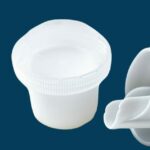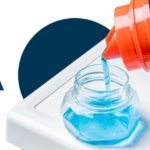U.S. Regulations for Laundry Detergents
By: Ivy Tang, PRINCIPAL REGULATORY CONSULTANT, email
When it comes to laundry detergents, the U.S. has a comprehensive set of regulations aimed at ensuring consumer safety, environmental protection, and truthful marketing. Understanding these regulations is crucial for manufacturers, retailers, and consumers alike. Here’s an overview of the key regulations governing laundry detergents in the United States.
Federal Hazardous Substances Act (FHSA) and Laundry Detergents
The Federal Hazardous Substances Act (FHSA) plays a critical role in the safety and labeling of retail laundry products in the U.S. Under the FHSA, laundry detergents must carry clear hazard warnings and detailed usage instructions to inform consumers of potential risks such as toxicity or flammability. Additionally, products containing certain hazardous chemicals may require child-resistant packaging in accordance with the Poison Prevention Packaging Act. The Consumer Product Safety Commission (CPSC) oversees compliance with these regulations, ensuring that products are properly labeled, inspected, and safe for consumer use.
California Cleaning Products Right to Know Act and Laundry Detergents
The California Cleaning Products Right to Know Act emphasizes transparency in the labeling of laundry detergents and other cleaning products sold in California. This law requires manufacturers to clearly disclose all ingredients on both the product label and the manufacturer’s website, helping consumers make informed purchasing decisions. The disclosure includes ingredients listed on California Prop 65, various carcinogen/mutagen/reproductive toxicant lists, and the EU fragrance allergen list. By promoting transparency, this Act enhances consumer safety and holds manufacturers accountable for the content of their products.
Environmental Protection Agency (EPA) Regulations and Laundry Detergents
The Environmental Protection Agency (EPA) regulates laundry detergents through its Safer Choice Program, which certifies products with formulations that are safer for human health and the environment. To earn the Safer Choice certification, laundry detergents must meet stringent safety and performance standards, ensuring they are effective while avoiding harmful chemicals. This certification helps consumers easily identify and select products that are both environmentally friendly and safe to use, promoting sustainability in household cleaning.
Federal Trade Commission (FTC) Guidelines and Laundry Detergents
The Federal Trade Commission (FTC) enforces guidelines to ensure that advertising claims for laundry detergents are truthful and well-substantiated. These guidelines require that any claims about the product’s effectiveness, such as stain removal capabilities, are backed by reliable evidence. Additionally, environmental claims, like biodegradability, must be supported by clear scientific data to avoid misleading consumers. The FTC also mandates that endorsements and testimonials in advertisements must be genuine and disclose any material connections to the manufacturer, ensuring transparency and honesty in marketing practices.
OSHA Regulations and Laundry Detergents
The Occupational Safety and Health Administration (OSHA) sets standards that impact industrial laundry detergents by requiring comprehensive Safety Data Sheets (SDS) and labels. These SDSs and labels must provide detailed information on chemical composition, hazards, and safe handling procedures. Employers are responsible for training their employees on this information and ensuring that appropriate protective measures, such as personal protective equipment (PPE), are in place. OSHA also enforces exposure limits for chemicals in laundry products, ensuring a safe working environment for those who handle these detergents in industrial settings.
Conclusion
In summary, U.S. regulations for laundry detergents encompass a range of safety, environmental, and advertising standards that manufacturers must adhere to. Compliance with these regulations not only protects consumers and workers but also promotes transparency and sustainability in the marketplace. Understanding these regulations is essential for any company involved in the production, distribution, or sale of laundry detergents in the United States.
Read our blog post on Canadian Laundry Detergent Regulations to learn about the Canadian requirements.
FAQ about Laundry Detergent Regulations in the U.S.
What are the labeling requirements for laundry detergents under the Federal Hazardous Substances Act (FHSA)? Under the FHSA, laundry detergents must include clear hazard warnings and safe usage instructions on their labels. If a detergent contains hazardous chemicals, the label must disclose potential risks such as toxicity or flammability, and in some cases, the product must also have child-resistant packaging to prevent accidental exposure.
What ingredients need to be disclosed on laundry detergent labels in California? The California Cleaning Products Right to Know Act requires that all ingredients in laundry detergents be disclosed on both the product label and the manufacturer’s website. This includes any ingredients listed on California Prop 65, various carcinogen/mutagen/reproductive toxicant lists, and the EU fragrance allergen list, among others.
How can consumers identify environmentally friendly laundry detergents? Consumers can look for the EPA’s Safer Choice certification on laundry detergent labels. This certification indicates that the product meets strict safety and performance criteria, ensuring it is effective while being safer for human health and the environment.
What are the Federal Trade Commission (FTC) guidelines for advertising laundry detergents? The FTC requires that all advertising claims for laundry detergents, such as effectiveness in stain removal or environmental benefits, be truthful and supported by reliable evidence. Advertisements must not be misleading, and any endorsements or testimonials used must disclose any material connections to the manufacturer.
What are the OSHA requirements for industrial laundry detergents? OSHA regulations require that industrial laundry detergents come with detailed Safety Data Sheets (SDS) and labels that provide information on chemical composition, hazards, and safe handling procedures. Employers must ensure that their employees are trained on this information and that proper protective measures are in place, such as personal protective equipment (PPE).
How Dell Tech Supports U.S. Regulations
Regulatory Support
Ensure your laundry detergents comply with U.S. standards with Dell Tech’s specialized expertise. We provide consulting services tailored to the U.S. market, focusing on essential regulations such as the Federal Hazardous Substances Act (FHSA), the California Cleaning Products Right to Know Act, and the Environmental Protection Agency (EPA) regulations.
Our services include managing documentation, conducting testing, and performing compliance audits for certifications like EPA Safer Choice and Green Seal. Partner with us to streamline your compliance process and stay updated on regulatory changes. Visit our website or contact us to learn more.
In-house Laundry Detergent Testing
Elevate your laundry products with Dell Tech’s testing services, designed to meet U.S. regulatory standards.
Our testing covers critical areas such as ASTM D4265 for stain removal, color fastness, and foaming efficiency. Additionally, the Household & Commercial Products Association (HCPA) DCC-11 method evaluates prewash spotters to ensure superior stain removal. We also conduct Dermal Irritection and Corrositex tests to confirm skin safety and prevent corrosive effects.
Achieve excellence and environmental responsibility with Green Seal certifications tailored for household (GS-48) and industrial (GS-51) laundry products. Partner with Dell Tech to ensure your products meet U.S. regulatory standards and excel in the marketplace.






